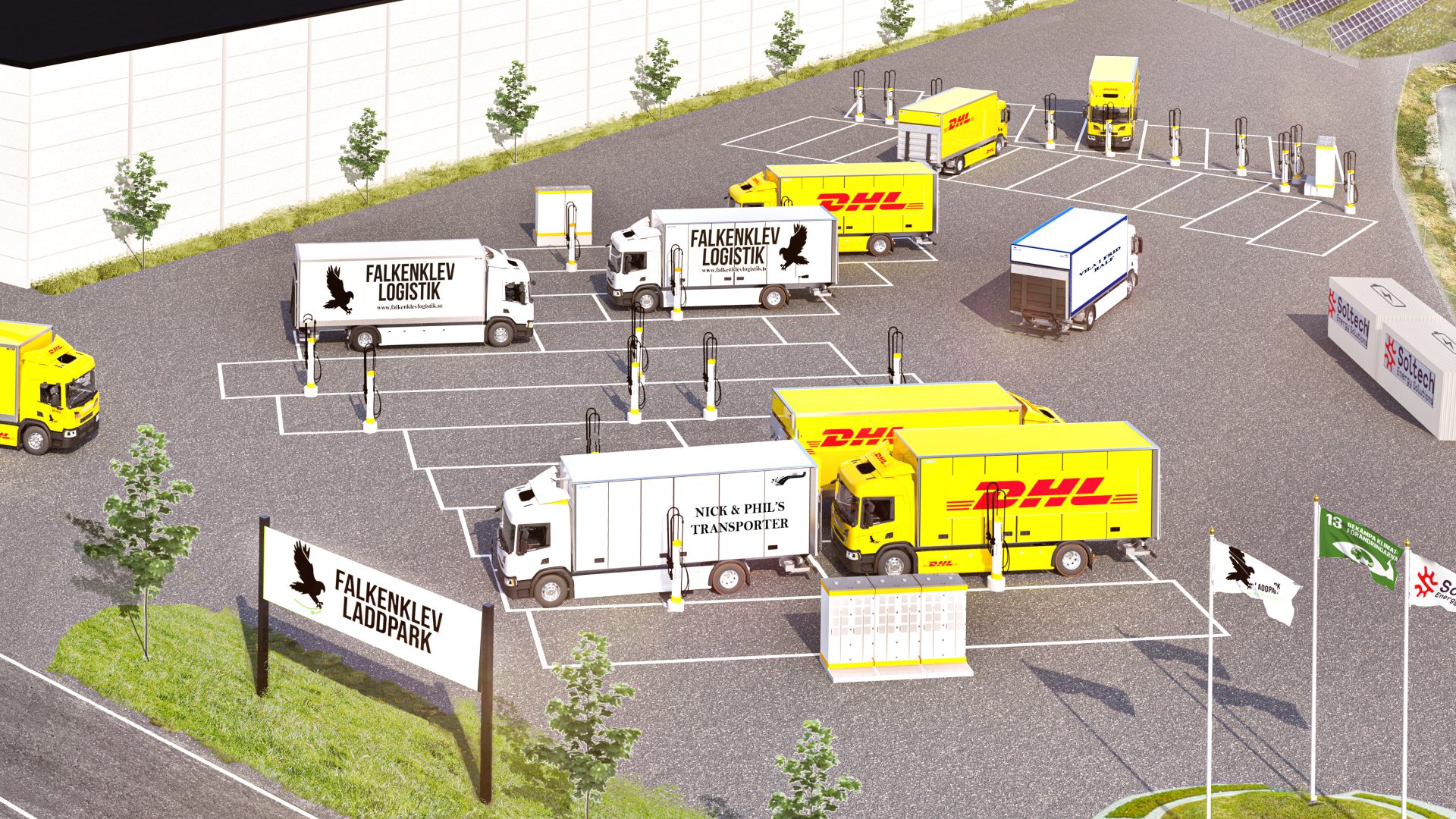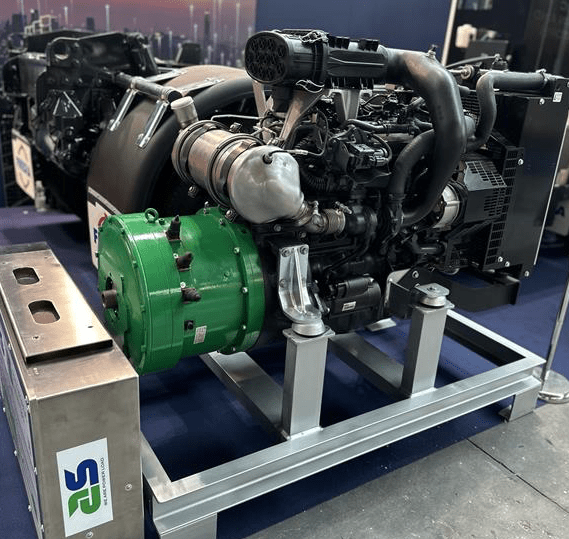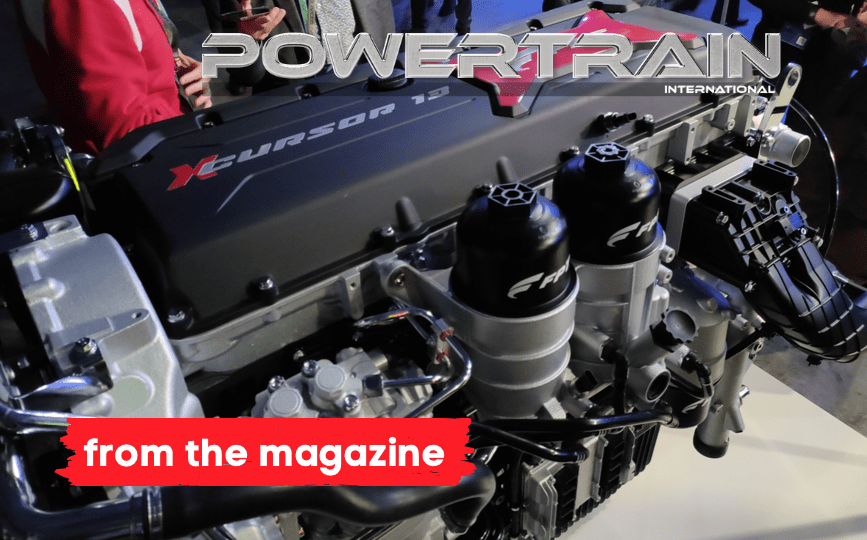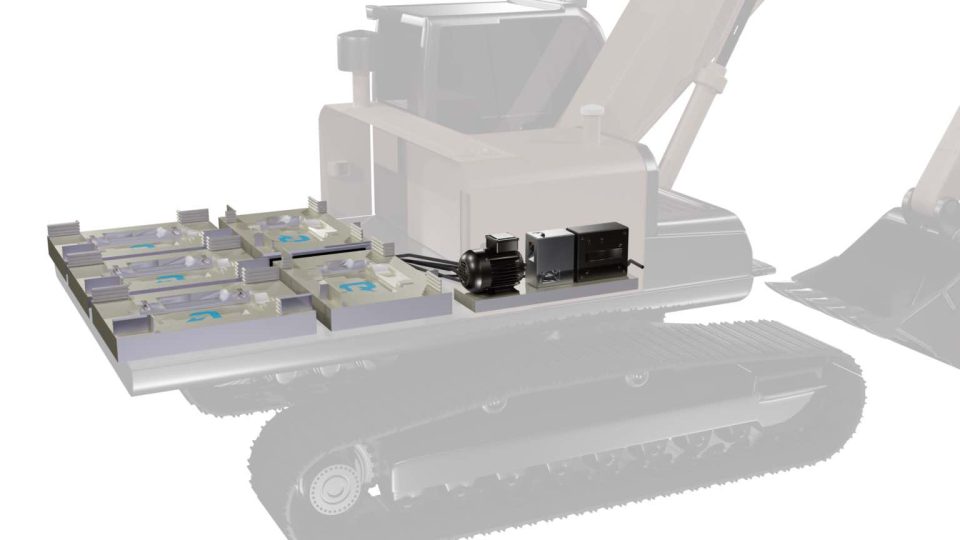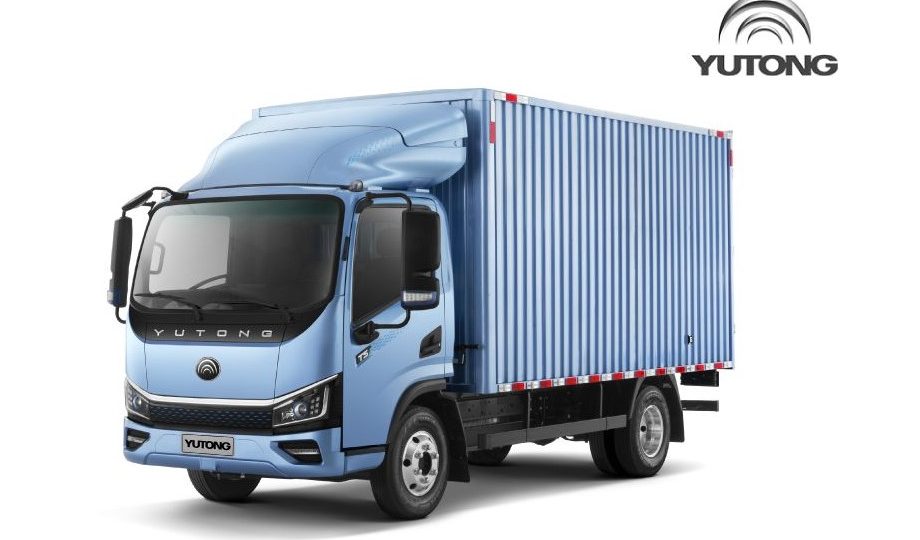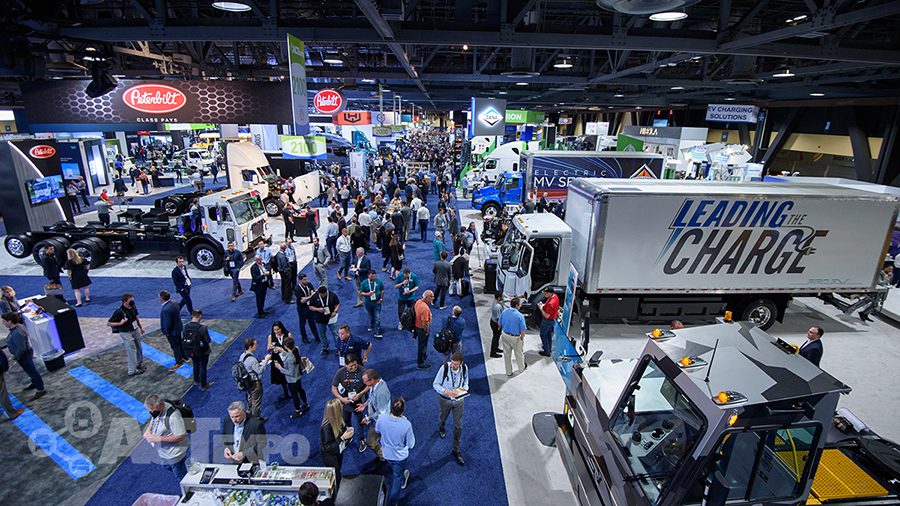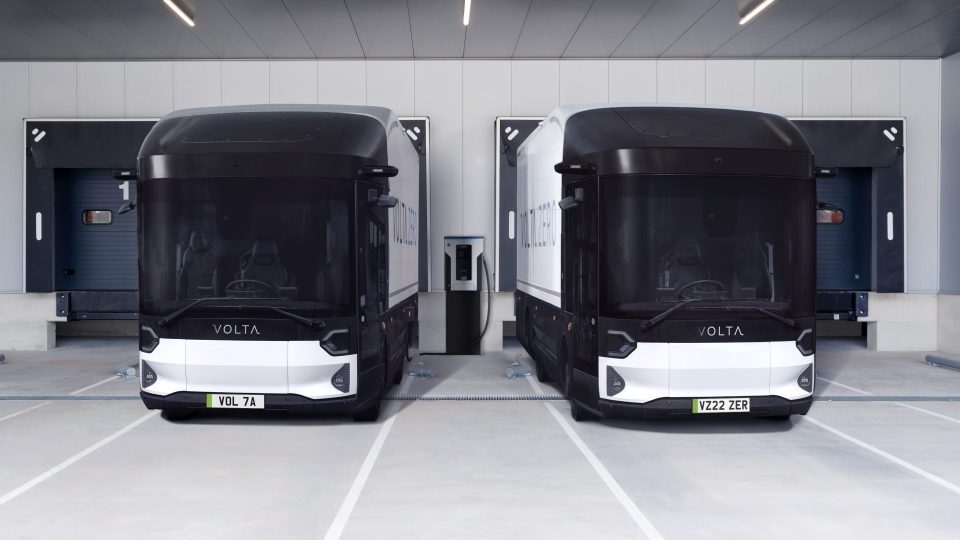Scania to supply 5 battery-electric vehicles and charging equipment to Swedish haulier
Scania is delivering an e-mobility solution including five battery electric trucks and 1.6 MW charging equipment to Swedish company Falkenklev Logistik as part of the haulier’s visionary plan for a 22-vehicle electric charging station at a new company depot in Malmö.
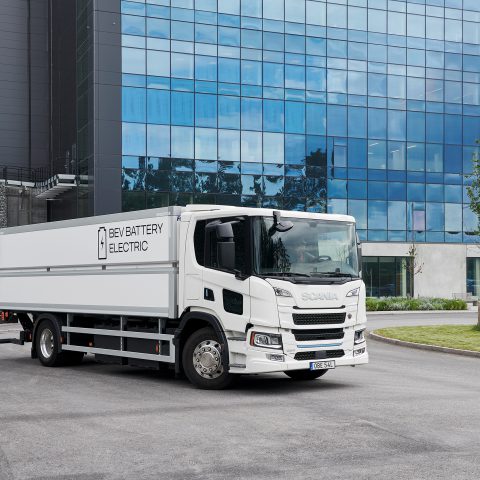
Scania is delivering an e-mobility solution including five battery-electric trucks and 1.6 MW charging equipment to Swedish company Falkenklev Logistik as part of the haulier’s visionary plan for a 22-vehicle electric charging station at a new company depot in Malmö.
The site, which could potentially be expanded to charge up to 40 vehicles simultaneously, will become Sweden’s largest truck charging station when it opens later this year. It is the result of an imaginative project involving several companies in the transport and renewable energy ecosystems.
Falkenklev Logistik’s scheme is key to its goal of making its whole vehicle fleet electric. The five Scania battery-electric 4×2 trucks, with vehicle bodies built by SKAB, will be used by the haulier in its goods distribution jobs throughout Skåne in southern Sweden.
The charging station in Malmö will be supplied by Finnish manufacturer Kempower and delivered by Scania. The system is built on smart technology that can supply energy based on the number of vehicles charging simultaneously, with an initial maximum output per vehicle of 250 kW and the potential to upgrade to 320 kW per vehicle in the future. Consideration has been given to making the site future-proof to allow charging of coming generations of battery-electric vehicles with bigger batteries and longer range.
Falkenklev has also commissioned the solar energy company Soltech Energy Solutions to build a 1.5-hectare solar park along with a 2 MW battery energy storage system to create a state-of-the-art energy hub.
Scania and Falkenklev Logistic: charging stations available for other battery-electric vehicles
But perhaps the most striking detail of the initiative is that Falkenklev has agreed to make the charging stations publicly available for charging of other vehicles, in addition to the haulier’s own trucks. The site will also be able to support en-route charging of long-haul electric trucks.
Falkenklev Logistik’s CEO Victor Falkenklev says, “The charging stations and solar park are an idea I have had for a couple of years. With the need to become more sustainable and the way diesel prices are increasing, it was quite obvious to me that we had to do something, and we are committed to electrifying our fleet. The electricity is being generated by solar power, which makes it 100% renewable. It’s a really proud moment for us.”
It’s an innovative, sustainable and economical solution for the public good, which will be financed in part by the climate fund of Swedish environmental protection agency Naturvårdsverket, which will cover half the cost of the SEK 18 million project. Falkenklev is paying for the remaining costs.
